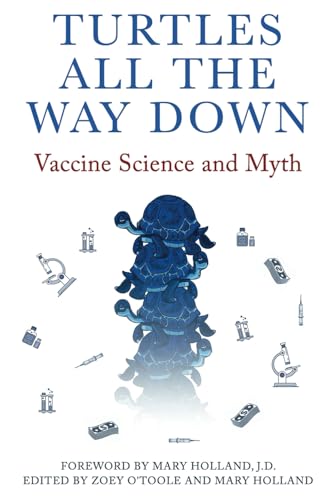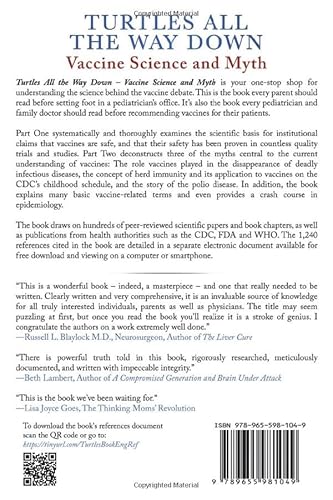Hey, folks! If you’re tired of book reviews that use words longer than your grocery list, you’re in the right spot. Today, I’m here with my review of Turtles All the Way Down. I’ll chat about how the book explains vaccine science, sorts out myths and facts, helps out beginners, and if it plays fair with its info. Let’s see if this book is worth your time—or if you should just watch cat videos instead!
In a nutsheel
If you like young adult books with messy feelings and deep thoughts, Turtles All the Way Down by John Green should keep you busy. It’s a story about Aza Holmes, a teenager just trying to make sense of her own wild mind while looking for a missing billionaire. There’s mystery, but this book is more about Aza’s struggle with OCD, friendship, and what it means to be yourself when your brain keeps fighting you.
John Green packs in big themes like mental health, loyalty, and finding hope when things get weird. You’ll laugh, you might cry (I won’t judge), and you might even learn a thing or two about being a decent human.
Understanding Vaccine Science in ‘Turtles All the Way Down’
If you picked up ‘Turtles All the Way Down’ hoping for a deep dive into vaccine science, you might be in for a big surprise. The book isn’t about a turtle-powered vaccine revolution. But, it does tackle the topic of vaccine science in a way that made even my science-hating friend, Dave, nod with interest instead of falling asleep drooling on my couch.
The authors take recent studies and stack them up like a teetering pile of pancakes, showing you where things look tasty and where they’re starting to smell a bit off. There’s an attempt to break down how vaccines are developed, from those first wobbly lab steps to the parade of paperwork and, finally, to the actual shot in the arm. Think less ‘mad scientist in a lab coat’ and more ‘my grandma with her recipe book’—things are explained in plain language, even if sometimes it’s like listening to someone read the recipe and then add a few spicy rumors at the end.
Personally, I liked that the book called out the gaps in vaccine studies. It made me think—hey, maybe not all studies are as solid as my uncle’s meatloaf. The authors make sure you know where the science is strong, but they aren’t shy about showing where things are shakier than my last attempt at riding a skateboard.
One downside? Sometimes it feels like you’re getting more questions than answers, and I wanted a little more science and a little less suspicion. But hey, at least there’s less jargon than in my high school chemistry class!
Next up, I’ll toss my hat in the ring and see if the book sorts out myths from facts as clearly as I sort candy after Halloween.
Separating Myths from Facts in Turtles All the Way Down
When it comes to sorting out what’s real and what’s a myth, Turtles All the Way Down takes its job very seriously. Now, I’ll be honest, I’ve read enough books in my life to know some authors treat fact versus fiction like a loose game of telephone. But John Green? Nope! He tries hard to show the myths that surround mental health, but also tries even harder to get the facts straight. This makes the reading both interesting and useful, especially if you’ve ever found yourself believing those wild internet stories about anxiety or OCD.
Throughout the book, the myths get called out in a way that’s easy to follow. For example, instead of making anxiety seem like a simple nervous moment, the story shows how it sticks around like your neighbor’s cat that never leaves your porch. Plus, you see people—characters and even adults—say things that just aren’t true, and then you watch how the main character sort of debunks them by living her life. I once thought OCD was all about washing your hands a lot, but after reading, I realize that’s just the tip of the turtle iceberg.
But here’s the thing: sometimes, the line between myth and fact gets a little blurry in the book. Some ideas are so wrapped up in the main character’s thoughts that you’re not sure if it’s a myth or just her unique way of seeing the world. Still, that’s life, right? Not everything has a perfect answer.
Stick around, because next, I’m going to share if this book is any good for readers who are brand new to the topic—you won’t want to miss this one!
How Helpful is ‘Turtles All the Way Down’ for Absolute Beginners?
Let me tell you, as someone who once thought “titer” was just a typo for “tiger,” ‘Turtles All the Way Down’ does a pretty good job of welcoming newbies. If you’re the kind of reader whose knowledge of the subject is based mostly on heated arguments you overheard in a coffee shop, this book won’t make you feel silly for not knowing more. The author uses simple language that makes complicated stuff much less scary. I’m not saying you’ll become a vaccine scientist overnight, but at least you won’t be the person at the dinner table saying wild things you saw on social media.
One of the best things about the book is that it starts at the very basics. It doesn’t assume you know all the medical lingo or have a degree in biology (my degree is in snacking on the couch, for what it’s worth). The book takes you from zero to “hey, I know what an mRNA vaccine is!” without once making you want to fake an emergency to leave the room. There are handy summaries at the end of chapters, so if you zoned out daydreaming about pizza (happens to me a lot), you can catch up quick.
Turtles All the Way Down is like that patient friend who explains things without rolling their eyes, but isn’t afraid to challenge you either. Up next, I’ll be looking at whether the book wears its bias on its shell or keeps things fair and balanced—so stay tuned, because this might get spicy!
Unpacking Bias and Fairness in Turtles All the Way Down
When I picked up Turtles All the Way Down, I honestly thought there might be actual turtles or maybe a plumber named Mario on a never-ending quest. Spoiler: there is neither. But what John Green does tackle is the big topic of bias and fairness in the way people see the world (and themselves, and each other, and, well, turtles—kind of). I read this book with a group of my more argumentative friends. You know the type: willing to argue about whether pineapple belongs on pizza. We all agreed, for once, that the book takes a seriously honest look at hard subjects without being preachy.
The main character, Aza, spends a lot of time inside her own head—sometimes too much. This isn’t just about mental health; it’s also about how our own thoughts can mess with the way we see facts. The book is good at showing how personal bias creeps into arguments about what’s true and what’s not. For example, when Aza and Daisy try to figure out what’s real about the missing billionaire (which is the mystery bit), they’re pulling from their own ideas and feelings. It reminded me of when my cousin tries to convince me that his favorite superhero could beat mine in a fight: he argues, but you can tell he’s not always being fair.
Green doesn’t smack you with his own opinions, either. Instead, you get arguments from different angles. It’s like being at a holiday dinner table when everyone has a different view on, say, Uncle Lou’s conspiracy theories. The book shows that being fair means admitting you don’t know everything. I’ll admit, sometimes it goes a bit in circles, but hey, so does my morning routine.
So, do I recommend Turtles All the Way Down for thinking about bias and fairness? Heck yes. Just don’t expect any actual turtles.
Conclusion
Turtles All the Way Down is a fun but thoughtful read, mixing mystery, mental health, and friendship in a way only John Green can pull off. It’s great for beginners and teens, with clear writing and lots of heart. Sometimes the line between fact and myth gets a bit fuzzy, and the book leans on what real life feels like instead of preaching. Still, it’s fair and honest, which I always like. If you want a story that makes you laugh, think, and maybe Google a few things about turtles (and the universe), then it’s worth your time. That wraps up my review—hope it helped you decide if this is a book for your shelf, or if you’d rather go search for actual turtles instead!



